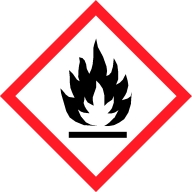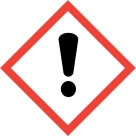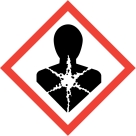Histofluid Eindeckmittel

Histofluid ist ein farbloser, klarer, in Xylol gelöster Klebstoff, der schnell härtet und sich aufgrund seiner optischen Eigenschaften sehr gut zum Eindecken mikroskopischer Präparate eignet. Bereits kurz nach dem Eindecken können die Präparate untersucht und archiviert werden. Außerdem kann man Histofluid auch zur Sicherung von Flaschenverschlüssen gut verwenden....
Reagenzgläser, Durham, Natron-Kalk-Glas

Durham Reagenzgläser werden in der Mikrobiologie verwendet, um die Gasproduktion von Mikroorganismen festzustellen. Diese speziellen Reagenzgläser werden hierfür kopfüber in größere Gläser gestülpt.
- hergestellt aus Natron-Kalk-Glas
- mit geradem Rand und rundem Boden
- ungraduiert
Labormarker, ultrafein
Zur Beschriftung aller Oberflächen aus Glas, Kunststoff und Papier. Permanentmarker mit sehr feiner Spitze besonders geeignet für die dauerhafte Beschriftung von Objektträgern, Einbettkassetten, Petrischalen oder CDs. Strichstärke ca. 1 mm.
- Wasserfest
- Widersteht den meisten Laborchemikalien
- Vorbehandlung der Schreiboberfläche nicht notwendig
- Ohne Lösungsmittel, auf wässriger Basis
- Geruchslos
- Nicht toxisch
- Mit Halteclip
Haemacytometer-und Zählkammer-Deckgläser
Durch das plane Aufliegen der Deckgläser auf den Stegen der Zählkammern befindet sich ein definiertes Volumen von Zellsuspension über dem Zählnetz. Für in-vitro-diagnostische Anwendungen gemäß IVD Richtlinie 98/79/EG, mit Chargennummer zur Rückverfolgbarkeit.
Stärke der Deckgläser 0,4 mm.
- Hergestellt aus optischem Spezialglas
- Kanten geschliffen und poliert
- Besonders gut geeignet für Blutausstriche durch hohe Schliffqualität
- Einzeln verpackt in Polybeuteln
Adhäsionsobjektträger HistoBond®, Mattrand
Geeignet für Immunhistochemie und in-situ-Hybridisierung.
- Hergestellt aus Natron-Kalk-Glas der 3. hydrolytischen Klasse
- Vorgereinigt und gebrauchsfertig
- Autoklavierbar
- Erfüllen die Anforderungen der DIN ISO 8037/1 und für in-vitro-diagnostische Anwendungen gemäß IVD-Richtlinie 98/79/EG
- Mit empfohlenem Verbrauchsdatum und Chargennummer
Deckgläser, rund
- Hergestellt aus chemisch resistentem Borosilikatglas D 263® M der 1. hydrolytischen Klasse
- Absolut farblos, völlig klar, geeignet für Fluoreszenzmikroskopie
- Erfüllen alle Anforderungen der DIN ISO 8255
- Stärke No. 1 (0,13 - 0,16 mm) oder Stärke No. 1,5H (0,170 mm ±0,005 mm) wie angegeben
Objektträger
- Hergestellt aus Natron-Kalk-Glas der 3. hydrolytischen Klasse
- Erfüllen die Anforderungen der DIN ISO 8037/1
- Ausführungen mit Mattrand haben ein Beschriftungsfeld von ca. 20 mm auf beiden Seiten, an einem Ende
- Vorgereinigt und gebrauchsfertig
- Autoklavierbar
Zählkammer nach Neubauer improved
Zur Untersuchung von Zellsuspensionen.
- Doppelte Netzteilung
- Hergestellt aus optischem Spezialglas gemäß DIN ISO 12 847
- Toleranz der Kammertiefe maximal 2 %
- Zählnetze sind eingraviert in 2 plangeschliffene und -polierte Flächen im Kammerboden, der sich zwischen 2 erhöhten, ebenfalls plangeschliffenen und planpolierten Stegen befindet
- Mit 2 Hämacytometer-Deckgläsern (20 x 26 x 0,4 mm)
Diagnostika-Objektträger
Mit gut benetzbaren Reaktionsfeldern und Epoxid-Farbmasken mit hoher Lösungsmittelbeständigkeit. In den Farben blau, grün, rot, schwarz oder weiß erhältlich
- Hergestellt aus Natron-Kalk-Glas der 3. hydrolytischen Klasse
- Erfüllen die Anforderungen der DIN ISO 8037/1
- Mit 90° geschliffenen Kanten
- Mit seidenmattem Beschriftungsfeld von ca. 20 mm auf einer Seite
- Vorgereinigt und gebrauchsfertig
- Autoklavierbar










